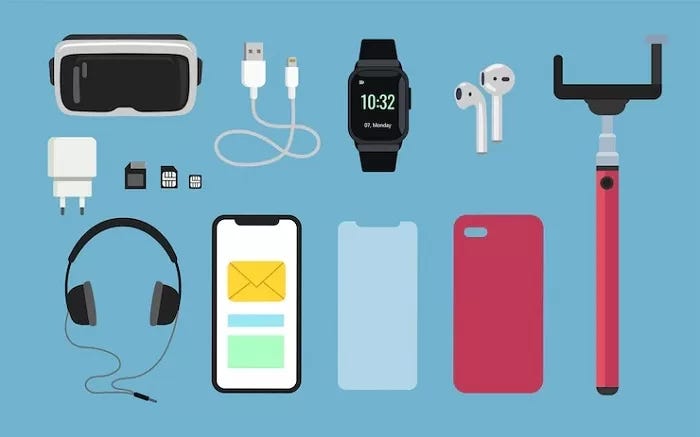In a world where capturing moments has become second nature to most of us, PhotoTech’s innovative advancements continue to reshape the way we immortalize our cherished memories. With a single click, we transport ourselves to a realm where time stands still, encapsulating our laughter, joy, and even the tiniest nuances that define our existence. But as this technology evolves, so too do the moral dilemmas it presents, prompting us to ponder whether we are capturing these moments responsibly. Join us on a thought-provoking journey as we navigate the intricate web of moral conundrums in the realm of PhotoTech, where the line blurs between treasured memories and the ethical boundaries we must traverse. Welcome to a world where morality meets technology, a world where every pixel charged with emotion carries a weight far beyond its digital existence.

Exploring the Complexities of PhotoTech’s Impact
In today’s digital age, photography has evolved alongside technology, giving rise to a myriad of ethical challenges. Balancing the profound moments captured through PhotoTech with the rights to privacy and consent has become a moral conundrum that photographers and society at large must grapple with. The ability to immortalize intimate moments through the lens of a camera has pushed the boundaries of artistic expression, leaving us to question where the line between capturing beauty and violating personal boundaries truly lies.
The Artistic Tightrope: Navigating Ethical Boundaries
At the heart of the ethical debate surrounding PhotoTech lies the delicate balance between artistic expression and respecting individual consent. While photographers strive to create captivating and evocative imagery, we must critically examine the potential impact on subjects’ privacy and emotional wellbeing. Each photograph not only freezes a single moment in time but also carries the weight of responsibility to ensure that it was obtained within the boundaries of mutual respect.
A Framework for Ethical PhotoTech Usage
To safeguard the dignity and rights of both subjects and creators, a framework for responsible PhotoTech usage is crucial. This framework encourages photographers to obtain informed consent, creating an open dialogue that addresses potential concerns and ensures the comfort of those being photographed. Furthermore, it emphasizes the importance of considering the broader social, cultural, and ethical implications surrounding the intended use of the images.
Preserving Moments with Respect
Capturing moments responsibly through PhotoTech calls for a constant evaluation of our actions as visual storytellers. It prompts us to be conscientious and empathetic, always aware of the power we possess to shape narratives through the lens. By respecting privacy, consent, and the cultural context in which we operate, we can ensure that each photograph is a testament to both artistry and ethical responsibility, preserving moments while honoring the integrity of the subjects involved. Let us embrace the potential of PhotoTech as a tool for meaningful connection, while remaining steadfast in our commitment to capturing moments responsibly.
The Way Forward
In the realm of technology and photography, where the boundaries of human expression and creativity continue to expand, it is crucial to pause and reflect upon the moral dilemmas that accompany this ever-evolving landscape. As we journey through the intricacies of capturing moments responsibly, we discover a vast tapestry of moral conundrums woven into the fabric of PhotoTech.
With the advent of state-of-the-art cameras and cutting-edge editing software, the realm of photography has become a realm where moments are frozen in time, only to be shared, discussed, and sometimes, even manipulated. In this world, the line between authenticity and deceit becomes increasingly blurred, challenging our ethical compasses.
Within this morally ambiguous realm, the power and responsibility that lie in the hands of photographers and technology companies cannot be overstated. Each click of the shutter has the potential to immortalize a fleeting moment, capturing not just its beauty but also its essence. But the question remains: what does it mean to capture a moment responsibly?
The journey begins with the realization that every photo we encounter has undergone a series of choices – from the composition to the editing process. Each decision carries a weight that often extends beyond aesthetics, delving into realms of cultural sensitivity, privacy, and the ever-present danger of misrepresentation. As we explore the vast array of moral conundrums PhotoTech places before us, we embark on an introspective voyage that challenges the boundaries of our own personal beliefs.
From street photographers who strive to capture genuine human experiences without violating privacy, to the realm of facial recognition technology that raises concerns about consent and surveillance, the moral complexities of PhotoTech force us to confront uncomfortable truths about the power dynamics inherent in capturing and sharing moments.
Capturing moments responsibly requires empathy, integrity, and a constant reevaluation of our actions. It represents a commitment to respecting the boundaries of those we capture, safeguarding their dignity and sanctity. It means understanding the consequences of our choices and ensuring they do not perpetuate harmful stereotypes or contribute to the erosion of personal privacy.
Ultimately, it is our collective responsibility as photographers, technology companies, and consumers to engage in a meaningful dialogue about the moral challenges posed by PhotoTech. Navigating these conundrums will undoubtedly be an ongoing journey, demanding open minds, active empathy, and an unwavering commitment to integrity.
As we conclude this exploration into the complex world of capturing moments responsibly, let us remember that the power of photos goes beyond their visual impact; it lies in the stories they tell and the emotions they evoke. Let us strive to wield this power with empathy, integrity, and the relentless pursuit of truth. Only then can we truly harness the potential of PhotoTech as a force for positive change while respecting the ethical boundaries that shape our shared humanity.

